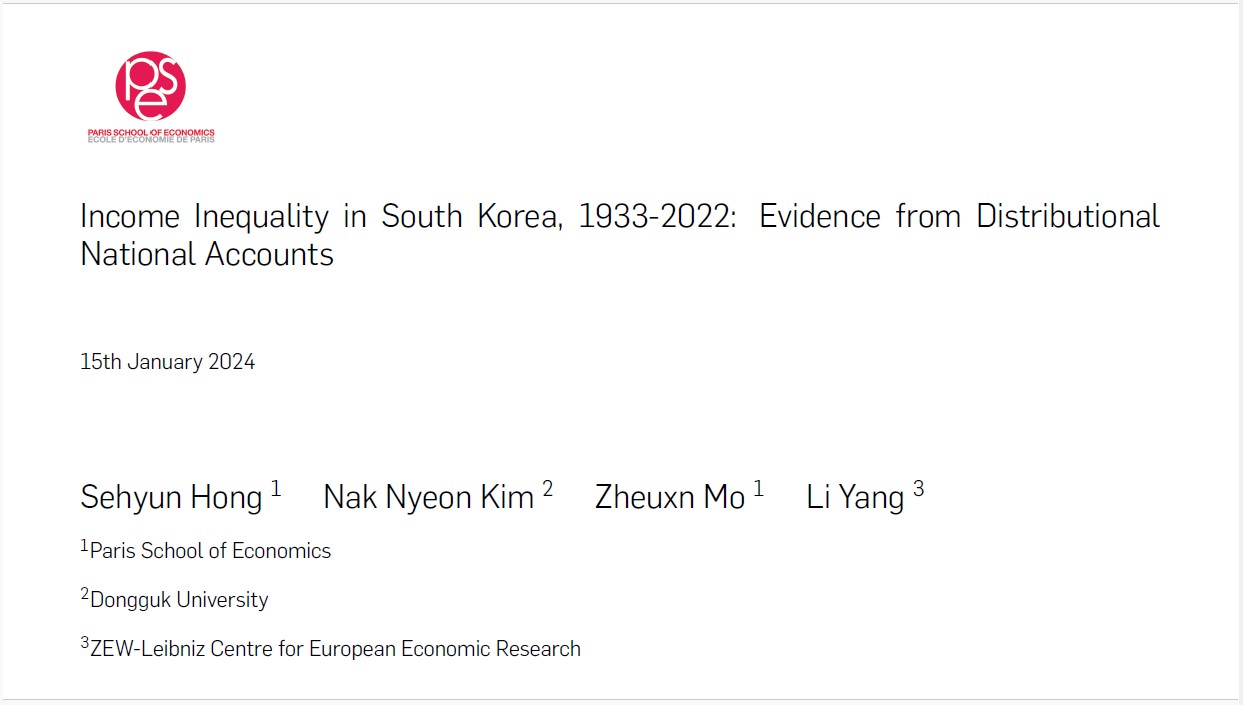1. 일시: 2024년 1월 15일
2. 장소: 웨비나
3. 참석자
- 발표자: 홍세현 (파리경제대학 박사과정)
- 유종성, 강남훈, 강우창, 김낙년, 이철승, 정준호, 박성호, 전병유, 손정욱, 구정은, 임다빈
4. 발표주제:
Sehyun Hong, Nak Nyeon Kim, Zhexun Mo, and Li Yang. "Income Inequality in South Korea, 1933-2022: Evidence from Distributional National Accounts"


This study presents “Distributional National Accounts (DINA)" for South Korea. We combine household survey micro data, tax data, and national accounts to construct annual pretax income inequality series which is coherent with macro aggregates. We show the distribution of pretax national income over the period from 1933 to 2020, with detailed breakdown by age, gender, and income composition in the years from 1996 to 2020. This series allows for a much richer analysis of the long-run income inequality trend in South Korea than previous work based on fiscal tabulation, which only includes top income shares and misses an increasing component of tax-exempted capital income in recent years. Our new series suggests that after the Asian financial crisis in 1997, income inequality has worsened due to the rise of tax-exempted capital income concentration at the top. Additionally, South Korea is characterized with relatively higher gender inequality and lower old-age income shares compared to the United States and France. Compared to other East Asian countries, South Korea exhibits relatively lower levels of income inequality, mostly due to the fact that its national income growth was more equally distributed in the early stages of economic take-off in the 1980s, even though income inequality has worsened over the last three decades. Rather strikingly, despite similar economic backgrounds and development trajectories, there is a huge gap in pretax national income inequality between Taiwan and South Korea. This gap stems mostly from the fact that the distribution of capital income in Taiwan is much more unequal than that in Korea.
 EVENTS
EVENTS
 SEMINARS / WORKSHOPS
SEMINARS / WORKSHOPS
 EVENTS
EVENTS
 SEMINARS / WORKSHOPS
SEMINARS / WORKSHOPS



